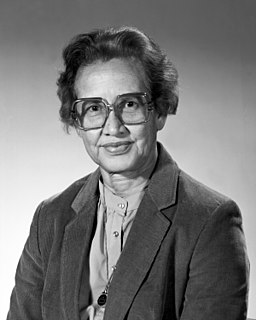A Quote by Hermann Hesse
At one time I had given much thought to why men were so very rarely capable of living for an ideal. Now I saw that many, no, all men were capable of dying for one.
Related Quotes
When we consider that each of us has only one life to live, isn’t it rather tragic to find men and women, with brains capable of comprehending the stars and the planets, talking about the weather; men and women, with hands capable of creating works of art, using those hands only for routine tasks; men and women, capable of independent thought, using their minds as a bowling-alley for popular ideas; men and women, capable of greatness, wallowing in mediocrity; men and women, capable of self-expression, slowly dying a mental death while they babble the confused monotone of the mob?
The inspiration of a noble cause involving human interests wide and far, enables men to do things they did not dream themselves capable of before, and which they were not capable of alone. The consciousness of belonging, vitally, to something beyond individuality; of being part of a personality that reaches we know not where, in space and time, greatens the heart to the limit of the souls ideal, and builds out the supreme character.
The great bulk of the legal voters of the South were men who owned no slaves; their homes were generally in the hills and poor country; their facilities for educating their children, even up to the point of reading and writing, were very limited; their interest in the contest was very meagre--what there was, if they had been capable of seeing it, was with the North; they too needed emancipation.
This is why I loved the support groups so much, if people thought you were dying, they gave you their full attention. If this might be the last time they saw you, they really saw you. Everything else about their checkbook balance and radio songs and messy hair went out the window. You had their full attention. People listened instead of just waiting for their turn to speak. And when they spoke, they weren't just telling you a story. When the two of you talked, you were building something, and afterward you were both different than before.
Back in the days when men were hunters and chest beaters and women spent their whole lives worrying about pregnancy or dying in childbirth, they often had to be taken against their will. Men complained that women were cold, unresponsive, frigid... They wanted their women wanton. They wanted their women wild. Now women were finally learning to be wanton and wild - and what happened? The men wilted.
I saw myself. . . in the time I watched, I saw strength and frailty, pride and vanity, courage and fear. Of wisdom, a little. Of folly much. Of intentions many good ones; but many more left undone. On this alas, I saw myself a man like any other. But this too I saw . . . Alike as men may seem, each is different as flakes of snow, no two the same.You told me you had no need to seek the Mirror, knowing you were Annlaw Clay-Shaper. Now I know who I am: myself and none other. I am Taran.
Men are noisy, narrow-band devices, but their nervous systems have very many parallel and simultaneously active channels. Relative to men, computing machines are very fast and very accurate, but they are constrained to perform only one or a few elementary operations at a time. Men are flexible, capable of "programming themselves contingently" on the basis of newly received information. Computing machines are single-minded, constrained by their "pre-programming."
I saw battle-corpses, myriads of them,
And the white skeletons of young men-I saw them;
I saw the debris and debris of all the dead soldiers of the war;
But I saw they were not as was thought;
They themselves were fully at rest-they suffer'd not;
The living remain'd and suffer'd-the mother suffer'd,
And the wife and the child, and the musing comrade suffer'd,
And the armies that remain'd suffer'd.






































